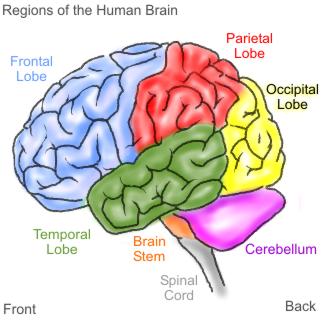The Story
Following his academic training and a 6-year teaching stint at Birkbeck College in London, Craik came to the University of Toronto. There, in 1972, he and colleague Robert Lockhart proposed a framework for human memory research which has had a considerable impact on the field. They suggested that memory was not so much a collection of stories or structures, but instead a set of qualitatively different processes. A series of experiments followed which showed very large differences in memory performances depending on the way the information was processed when it was first acquired. Craik applied this research to the study of age-related changes in memory, and his efforts have resulted in over 150 journal articles and book chapters, and eight co-edited books.
Craik has demonstrated that, while memory for specific events declines from the 40s on, other types of memory can hold up well with advancing age. These types of memory include memory for well-known words, facts and ideas, and even memory for information held in the mind for a short time, such as telephone numbers. The degree of success on such memory tasks depends on the balance between effortful, self-initiated mental processes and the extent to which the task is supported by environmental influences. Crucial is the integrity of the frontal lobes of the brain, areas generally thought to be involved principally when automatic routines cannot be used to solve a problem. It is believed that the efficiency of these areas declines with age. As people age, they tend to rely less on their declining self-generated abilities, and instead to use external lists, reminders, and prompts. A more complete understanding of which tasks need effortful frontal lobe memory, and which benefit more from external supports, will enable scientists to design procedures to help improve memory and other cognitive abilities.

Image by: Fedak Illustration and Graphics
In 1997, Craik was appointed Glassman Chair in Neuropsychology at U of Toronto. He is also an Associate Scientist at the Rotman Research Institute, which is a neuropsychological research group located at the Baycrest Centre for Geriatric Care in Toronto. He has served as Editor of the Journal of Verbal Learning and Verbal Behavior and been a member of the editorial boards of seven other journals. Other positions include Honorary President of the Canadian Psychological Association and Chairman of both the Psychonomic Research Society and U of Toronto's Department of Psychology.
Two of Craik's most recent books are The Oxford Handbook of Memory, co-edited with Endel Tulving (May 2000), and The Handbook of Aging and Cognition, co-edited with Timothy A. Salthouse (2nd edition, 1999).
Craik's many contributions in the fields of human memory and cognitive aging were celebrated at a conference held in May 2000 to mark his retirement from the University of Toronto. The resulting book, Perspectives on human memory and cognitive aging: Essays in honor of Fergus Craik, co-edited by Moshe Naveh-Benjamin, Morris Moscovitch, Henry L. Roediger III, was published in December 2001.
Sources: The Roybal Centre on Aging and Cognition; U of T News, April 24, 2000; U of T News, Oct. 14, 1997.
Career ideas:
- Counseling (such as career, emotional, marital, teen, etc.)
- Clinical Psychology
- Experimental Psychology
- Behavioral modification psychologist
- Child psychologist
- Clinical psychologist
- Cognitive psychologist
- Developmental psychologist
- Educational psychologist
- Engineering psychologist
- Industrial psychologist
- Neuropsychologist
- Organizational psychologist
- Military psychologist
- Psychotherapist
- Research psychologist
- School psychologist
- Social psychologist
- Sport psychologist
- Vocational psychologist
The Person
- Birthplace
- Scotland
- Title
- Professor Emeritus of Psychology; University Professor of Psychology
- Office
- University of Toronto
- Status
- Semi-retired
- Degrees
-
- BSc, University of Edinburgh
- PhD, University of Liverpool
- Awards
-
- Fellow, Society of Experimental Psychologists, 1977
- Fellow, Canadian Psych. Assoc., 1978
- Fellow, American Psych. Assoc., 1980
- Fellow, Center for Advanced Study in the Behavioral Sciences, Stanford, 1982-83
- Guggenheim Fellowship, 1982-83
- Killam Research Fellowship, 1982-84
- Fellow, Royal Society of Canada, 1985
- Ontario Psychological Foundation Certificate of Merit for Research in Aging, 1986
- Distinguished Contribution Award (Canadian Psych. Assoc.) for Contribution to Psychology as a Science, 1987
- Irv Acenberg Award, Rotman Institute, Baycrest Centre for Geriatric Care, 1992
- William James Fellow Award (APS), 1993
- Glassman Chair in Neuropsychology, University of Toronto, 1996
- Outstanding Teaching Award, Faculty of Arts and Science, 1996
- Hebb Award (Canadian Soc. for Brain, Behavior, & Cognitive Science), 1998
- Killam Prize Laureate, Natural Sciences, 2000
- Last Updated
- June 22, 2015
- Popularity
- 57194
Personal Webpage
Profile viewed 57194 times
Other scientists who may be of interest: